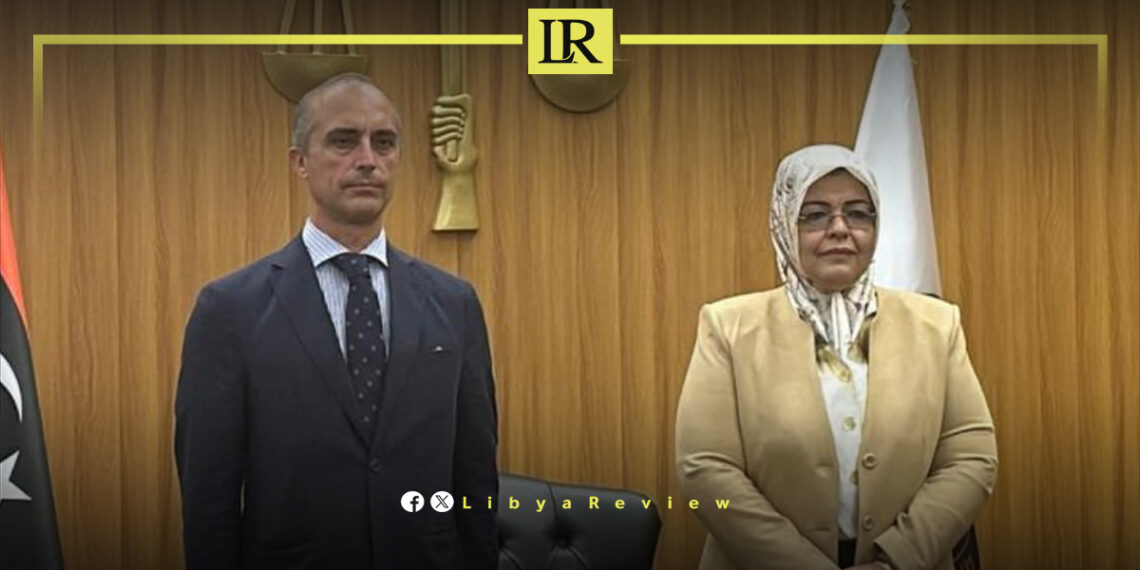Italian Ambassador Gianluca Alberini met with Libya’s Minister of Justice Halima Abdulrahman to review ongoing and future cooperation projects between the two countries in the judicial and legal fields.
According to diplomatic sources, the meeting provided an opportunity to discuss joint initiatives aimed at enhancing institutional capacity, improving access to justice, and supporting judicial reform efforts in Libya. Both sides reaffirmed their commitment to strengthening bilateral ties and exchanging expertise between judicial authorities in Rome and Tripoli.
The discussions also touched upon Italy’s support for training programs targeting Libyan judges, prosecutors, and legal staff, as part of a broader effort to modernize Libya’s justice system and align it with international standards.
Ambassador Alberini emphasized Italy’s longstanding partnership with Libya in building stronger rule-of-law institutions, while Minister Abdulrahman welcomed the Italian government’s continued engagement in promoting fair and transparent legal processes.
The meeting reflects the deepening cooperation between Italy and Libya, particularly in justice, governance, and institutional development.
Libya has been in chaos since a NATO-backed uprising toppled longtime leader Muammar Gaddafi in 2011. The county has for years been split between rival administrations.
Libya’s economy, heavily reliant on oil, has suffered due to the ongoing conflict. The instability has led to fluctuations in oil production and prices, impacting the global oil market and Libya’s economy.
The conflict has led to a significant humanitarian crisis in Libya, with thousands of people killed, and many more displaced. Migrants and refugees using Libya as a transit point to Europe have also faced dire conditions.
The planned elections for December 2021 were delayed due to disagreements over election laws and the eligibility of certain candidates. This delay has raised concerns about the feasibility of a peaceful political transition.
Despite the ceasefire, security remains a significant concern with sporadic fighting and the presence of mercenaries and foreign fighters. The unification of the military and the removal of foreign forces are crucial challenges.


